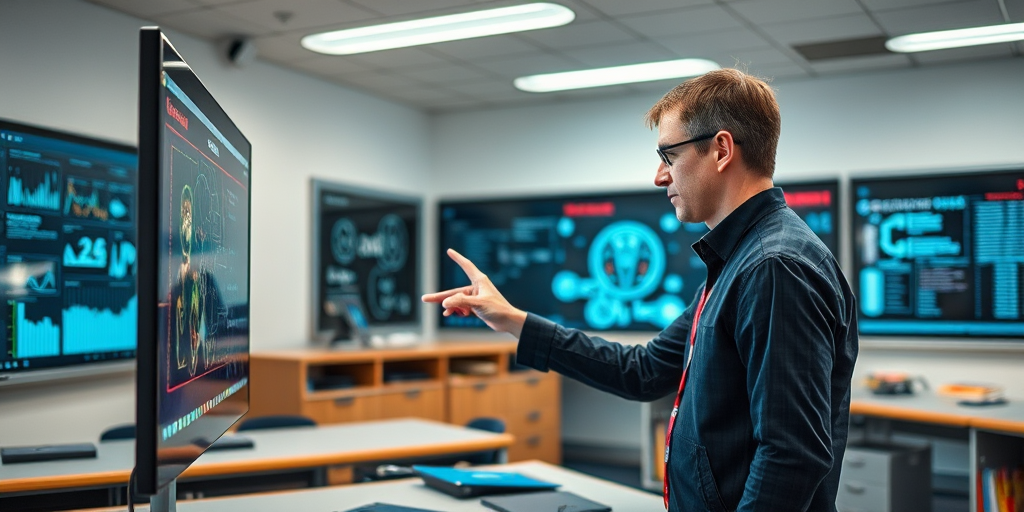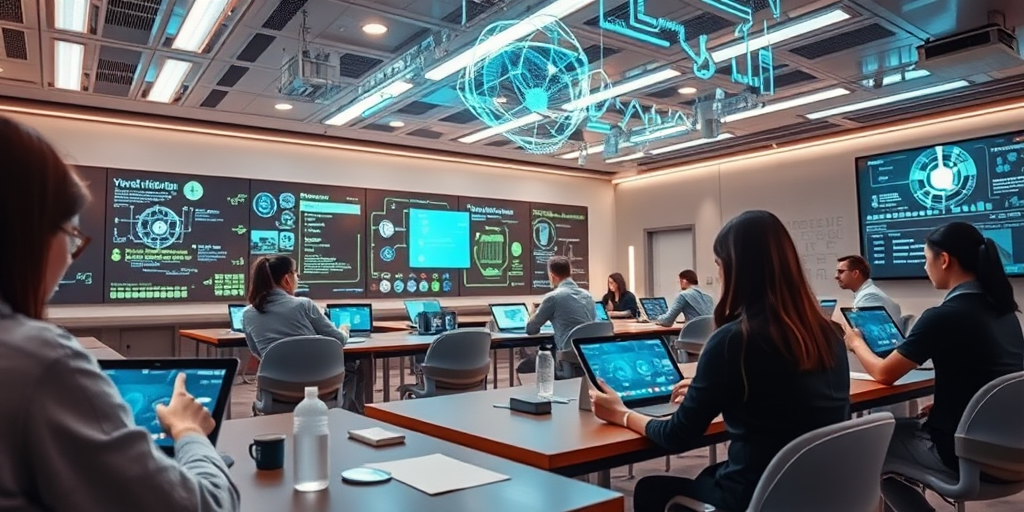Have you ever wondered if artificial intelligence could reshape our classrooms? I believe it’s already sparking change with adaptive learning platforms and streamlined cost efficiency. As I explore AI’s transformative impact on education, I’m excited by how intelligent systems enhance personalization and accessibility. The future of AI in education empowers both teachers and students to unlock new insights and engage with more dynamic learning methods, setting the stage for a revolution that transcends traditional teaching methods.
Emerging Trends in the Future of Artificial Intelligence in Education

I’ve observed adaptive learning platforms customize instruction to fit each student’s pace and style, transforming classroom experiences into dynamic, data-driven interactions. Automated analytics now offer robust academic insights, allowing educators to identify learning gaps and adjust course material seamlessly. With AI-assisted tutoring demonstrating a modest dropout rate compared to traditional methods, experimental findings reveal that these innovations are effectively closing student engagement gaps while streamlining complex content generation processes.
Technological advances such as transforming written content into interactive podcasts or video lessons through tools like NotebookLM indicate a shift toward immersive learning environments. By leveraging personalized instruction through automation, educators can deliver hyper-targeted content that evolves in real time, ensuring students receive constant feedback tailored to their performance. These emerging trends provide a blueprint for academic institutions aiming to navigate and harness the future potential of AI in learning.
- Hyper-personalization of learning content
- 24/7 AI tutoring support
- Real-time performance monitoring
- Automated feedback loops
- Seamless integration with existing educational technologies
The convergence of these trends not only redefines how content is delivered but also equips institutions with the agility to implement next-generation learning solutions. I see schools and universities seamlessly blending these intelligent tools within their curricula, ensuring that every learner can access an education that adapts to their needs while maintaining rigorous academic standards.
Ethical & Equity Issues in the Future of Artificial Intelligence in Education

AI integration in classrooms raises notable ethical challenges that demand close scrutiny. I have observed that algorithmic bias and concerns over student privacy can undermine confidence in the technology. Reliance on “pro” versions of AI risks creating an uneven playing field, where advanced tools become privileges rather than accessible rights. Moreover, dependency on AI for rapid responses may inadvertently diminish critical thinking skills, sometimes described as “brain rot,” and complicate the attribution of individual work when AI contributes to content generation.
- Ensuring universal access to AI tools
- Implementing bias reduction strategies
- Establishing robust institutional AI policy frameworks
Strategies to address these challenges are indispensable for creating equitable learning environments. By enforcing measures that promote fair access and minimize biases, educational institutions can safeguard both data security and academic integrity. I believe that systematically tackling these issues is essential for ensuring that AI adoption in education benefits all learners, thereby cultivating a fair and sustainable future where advanced technological tools empower every student without compromising core educational values.
Global Case Studies & Future Strategies for Artificial Intelligence in Education
In several regions, I have witnessed firsthand how AI integration transforms educational landscapes. In Europe, for instance, innovative online education portals offer tuition-free models and multi-language support, enabling broader access to learning resources. These platforms merge technology with personalized instruction, reflecting a technology-driven approach that addresses regional disparities. Across Asia, initiatives led by esteemed education leaders have reshaped higher education by combining intelligent systems with human-centered methodologies, ensuring that digital transformation does not eclipse the importance of individualized support.
Africa and Latin America showcase a blend of advanced technology and community engagement, where institutions are utilizing predictive analytics and intelligent assistant applications to adapt curricula to localized needs. These case studies reveal that strategic planning goes hand in hand with innovative technology to promote inclusive, scalable solutions. This regional diversity underscores the impact of aligning hard tech innovations with soft skills in teaching, ensuring that every learner benefits from AI-enhanced educational practices.
- AI‐driven curriculum development
- Integration of intelligent assistant applications
- Deployment of future educational robotics in classrooms
- Use of predictive analytics to gauge learning outcomes
Strategic planning and global collaboration are indispensable for harnessing AI’s full potential in education. By learning from diverse international case studies, I believe institutions can develop robust strategies that not only drive technological innovation, but also address unique regional challenges and opportunities, ensuring that AI continues to empower educators and students worldwide.
Final Words
In the action of dissecting key trends, historical shifts, and hands-on AI applications, we navigated the diverse spectrum of educational transformation.
Exploring ethical dilemmas alongside technological triumphs showcased how challenges can pave the way for innovative, data-driven learning.
The Future of Artificial Intelligence in Education stands as a promising frontier that redefines teaching, learning, and community engagement.
I’m excited to see these dynamic advances empower educators and learners alike, sparking ingenuity and fostering more resilient, adaptive academic environments.
FAQ
Q: What role will AI play in future education?
A: AI will transform education through personalized learning paths, 24/7 tutoring support, automated grading systems, and real-time performance monitoring. These tools will enhance both teaching efficiency and student engagement.
Q: How will AI assist teachers in the classroom?
A: AI will automate administrative tasks, saving teachers up to 12 hours weekly. It converts lectures into interactive formats, provides instant feedback, and facilitates project-based learning through intelligent assistance.
Q: What are the main benefits of AI in education?
A: AI enables hyper-personalized learning experiences, streamlines content delivery, and provides data-driven insights. It supports multiple learning styles through adaptive platforms and automated assessment tools.
Q: What challenges does AI face in education?
A: Key challenges include maintaining equitable access to advanced tools, preventing over-reliance on AI assistance, and balancing automated systems with human interaction in learning environments.
Q: How will AI affect student assessment?
A: AI will revolutionize assessment through real-time feedback, automated grading systems, and continuous performance tracking. It enables more accurate evaluation of student progress and personalized improvement strategies.
Q: What global trends are emerging in AI education?
A: Global trends include multi-language learning platforms, tuition-free online education models, AI-driven curriculum development, and intelligent tutoring systems that adapt to diverse cultural contexts.
Q: How can schools prepare for AI integration?
A: Schools should evaluate AI tool effectiveness, implement robust privacy frameworks, train staff on new technologies, and develop strategic plans for balanced AI adoption in classrooms.
